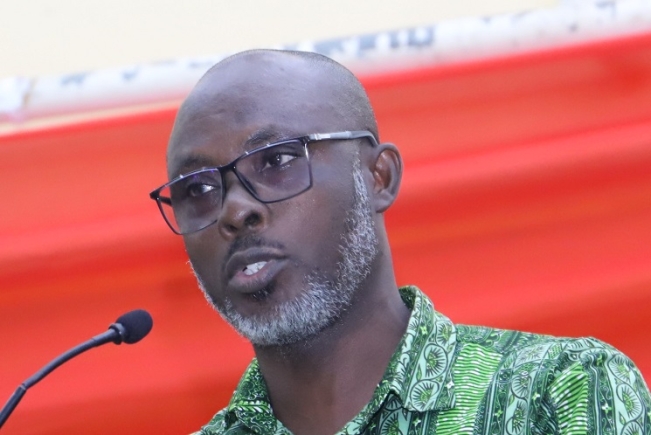
Towards energy sufficiency: Nuclear power inches home - Installation site identified, vendor selection ongoing
The country’s quest to produce power from nuclear energy, one of the most reliable sources of power generation, has been given a further boost with the identification of a preferred site for the plant.
Advertisement
Nuclear Power Ghana (NPG), which is executing the project, has identified a preferred site and a backup site for the installation of the country’s first nuclear power plant.
It has also initiated the process of selecting the technology vendor to mount the nuclear power plant.
At a press conference in Accra last Wednesday, the Executive Director of NPG, Dr Stephen Yamoah, said the selection of the site, which was part of phase two of the country’s Nuclear Power Programme, was done after technical studies of the area were completed.
Phase two of the project entails identifying a preferred site, conducting detailed site investigations and assessment of various technologies, selecting a strategic partner and conducting community engagement and stakeholder management.
The current process includes detailed site investigations to assess the site’s readiness to accept nuclear technology.
Already, Dr Yamoah said, some vendors had been invited to the site to appreciate the terrain.
“Hopefully by the end of the year, in dialogue with the Ministry of Energy and the government, we will have a direction as to the vendor and technology to select to pave the way for contract negotiations and discussions,” he said.
Other Trending Stories
NRA conference
The Nuclear Regulatory Authority (NRA) organised the press conference in collaboration with the Ghana Academy of Arts and Sciences, with sponsorship from the European Union through a consulting firm, ENCO.
The conference provided a platform for stakeholders to learn and discuss the status of Ghana's Nuclear Power Programme, as well as the role of the NRA in the programme.
On the theme, “The Role of the Nuclear Regulatory Authority in Ghana's Nuclear Power Programme", the event was attended by government officials, representatives from industries, students and the media.
Funding
On the issue of funding, Dr Yamoah said some mechanisms and structures would be put in place to ensure that the project was sustained.
He indicated that the financing of the project was one of the key topics discussed with the vendors.
The Executive Director of NPG said steps were also underway to ensure that the project remained on schedule after its commencement to avoid cost overruns.
He added that the NPG would collaborate with advanced countries to build its capacity, adding that the International Atomic Energy Agency had been the backbone of training and exposing experts to various approaches.
The Executive Director gave an assurance that when completed, tariffs for nuclear energy would be in the single digit.
Nuclear power
In view of the country’s dwindling energy sources, he said the country needed to add nuclear power to its energy mix.
He said it was important to scale up the country’s current power generation, which was around 5,000MW, serving the over 30 million population.
He stressed that a reliable baseload power to support the country’s industrialisation transformation agenda was necessary.
“Nuclear desirability comes in terms of reliability, affordability, security of supply and the fact that it galvanises industrial growth and that is what we need,” he said.
Advertisement
Strategic partner
The Deputy Director of the Nuclear Power Institute (NPI), Dr Archibold Buah-Kwofie, disclosed that requests for further information from vendors had been made and the responses received were being evaluated.
“We will come up with a report that will advise the government on the potential strategic partner, vendor or technology to go with.
“At the end of phase two, we would have identified a strategic partner, come out with a feasibility report that will entail all investigation, including the environmental impact assessment conducted as part of the site characterisation,” he added.
The Director-General of the NRA, Dr Nii Kwashie Allottey, said every stage of the nuclear power programme would go through a regulatory process to ensure that activities undertaken met the NRA’s standards and requirements.
Advertisement
He reiterated that the NRA had intensified public education and engagement, expressing its commitment to regulate the civilian use of nuclear and other radioactive materials in medicine, industry, agriculture, education and research.




